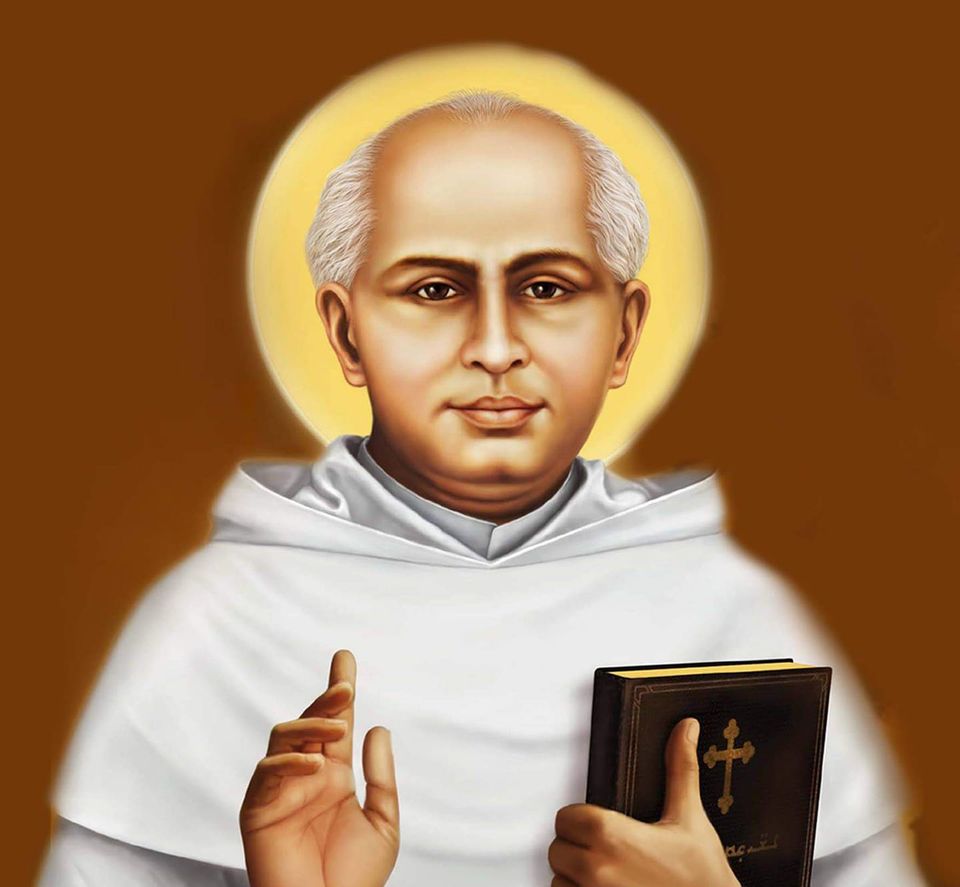OUR PATRON
Saint Kuriakose Elias Chavara was born on 10th Feb. 1805 of God fearing parents Iko (Kuriakose) Chavara and Mariam Thoppil of the Syro-Malabar Church, at Kainakary, near Allappuzha, Kerala. According to the local custom the infant was baptized on the 8th day in Chennankari Parish Church, Alappuzha. From the age 5 to 10, he attended the village school (Kalari) to study languages, different dialects, and elementary sciences under the guidance of a Hindu teacher (Asan). Inspired by the desire to become a priest, he began studies under the parish priest of the church of St. Joseph. At the age of 13 in 1818 he entered the seminary at Pallipuram where Malpan Thomas Palackal was the Rector. He was ordained priest on 29th November, 1829 at Arthunkal and celebrated his First Holy Mass at Chennankari Church. After the ordination he was engaged for some time in pastoral ministry; however he soon returned to the seminary to teach and also to officiate for Malpan Thomas Palackal during his absence. Thus he joined Malpan Thomas Porukara and Malpan Thomas Palackal when they were planning to found a congregation. He was the Prior General of all the monasteries of the congregation from 1856 till his death in 1871. Saint Kuriakose Elias Chavara, one of the founding fathers and the first Superior General of CMI (Carmelites of Mary Immaculate) congregation of the Catholic Church, died on January 3rd, 1871 in the order of sanctity leaving behind him the high reputation of a very holy monk. He was declared blessed on February 8, 1986 by His Holiness Pope John Paul II. Saint Kuriakose Elias Chavara was a great visionary. There is no area of human endeavour where the fingers of Saint Kuriakose Elias Chavara has not touched. To his credit there are many firsts in the history of the Kerala Church: the first indigenous religious congregation for men (CMI ), the first Sanskrit School, the first catholic printing press, the first Indian congregation for women( CMC ). He was first to edit and publish the East Syrian Breviary. He prepared the first liturgical calendar in the Malabar Church in 1862 which continued to be in use until the recent years. It was through his efforts Syriac was first printed in Kerala and the first prayer books in Malayalam were printed at Mannanam under his care. Essentially a man of prayer and intense charity, he stayed in close communion with the Lord, amidst his several religious and social activities, permeating his spirituality to all around him, so much so that he was accepted and referred to as a man of God, from his early years.

